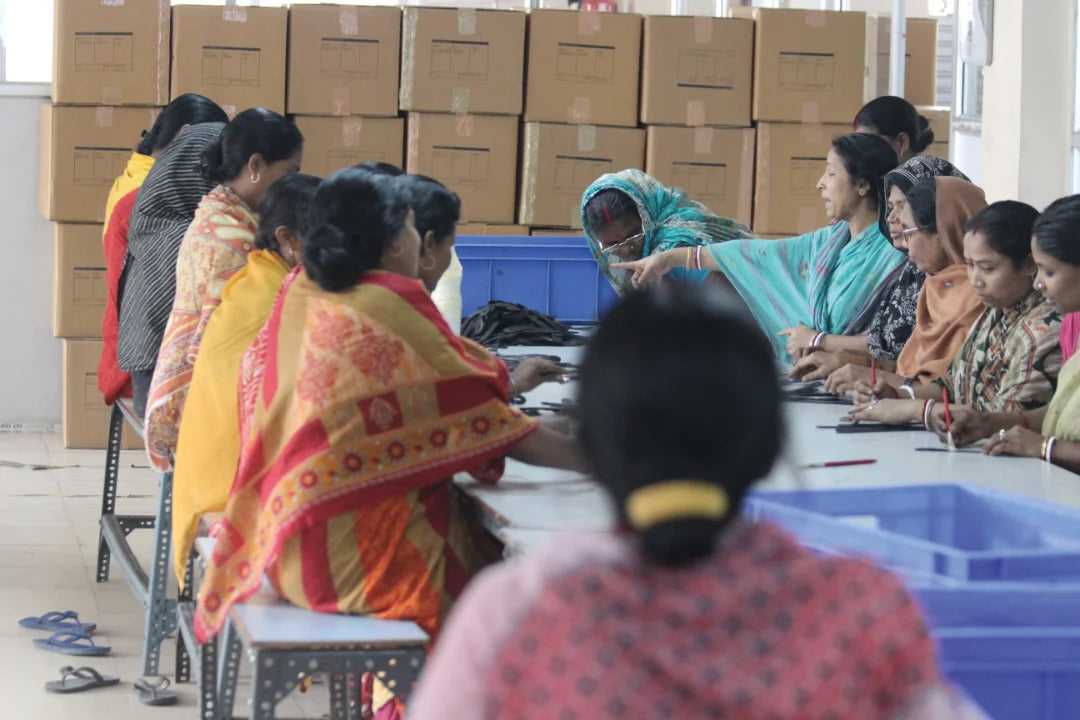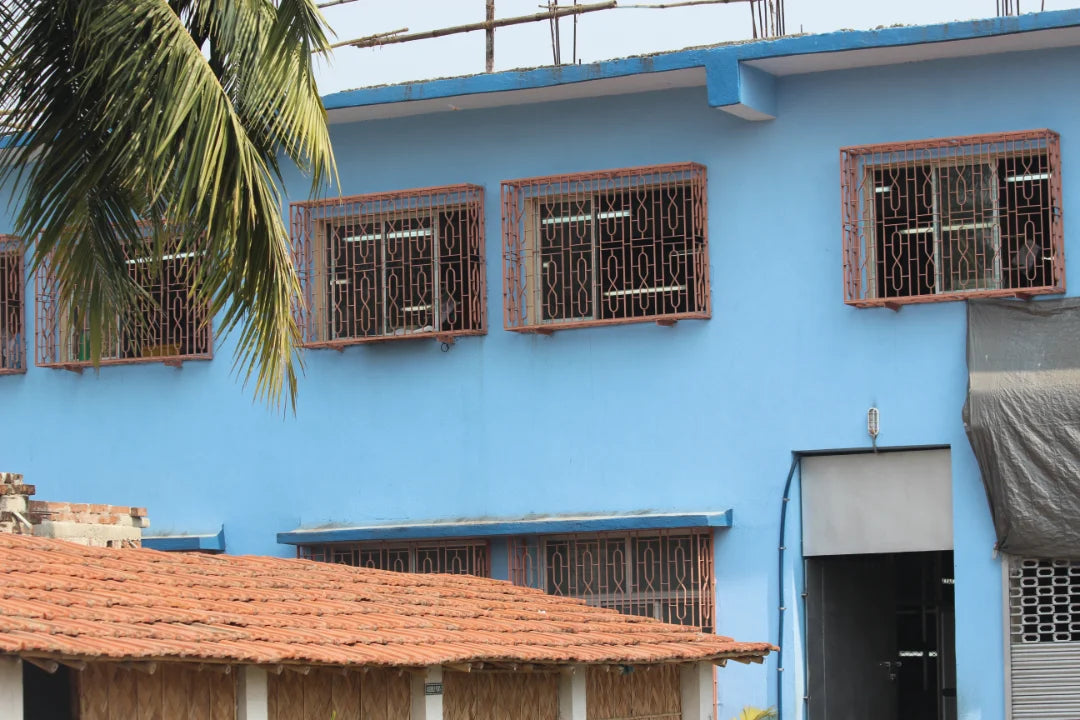Drei Länder, eine Handschrift
Unsere Produktion in Indien
Geschichte
Die Kooperation mit der indischen Manufaktur in Kalkutta begann 1998. Drei junge Brüder suchten nach einem Partner in Deutschland. Sie kontaktierten Harold’s, weil sie in uns einen Partner sahen, der ihnen vor allem das handwerkliche Know-how vermitteln kann. Wir begannen zunächst mit der Produktion schlichter Umhängetaschen, um darüber schrittweise handwerkliches Wissen in der jungen Produktion aufzubauen. Im Verlauf der Folgejahre wurde die Kollektion vergrößert und die Manufaktur an anspruchsvollere Taschenmodelle und Ledermaterialien herangeführt.
In diesem Zuge kamen vor allem gewachste und geölte Rindleder, pflanzlicher Gerbung zum Einsatz. Diese für Harold’s typischen, offenporigen Leder zeichnen sich durch ihre hohe Gebrauchsfähigkeit und Beständigkeit aus. Den behutsamen Aufbau der Manufaktur hat Harold’s mit einer gleichmässig verteilten Auftragslage unterstützt, vor allem um das aufgebaute Know-how zu bewahren. Das Behalten und Weiterentwickeln dieses Wissens unter den Handwerkern ist der Grundstein für die gleichbleibend hohe Verarbeitungsqualität der Harold’s Taschen.
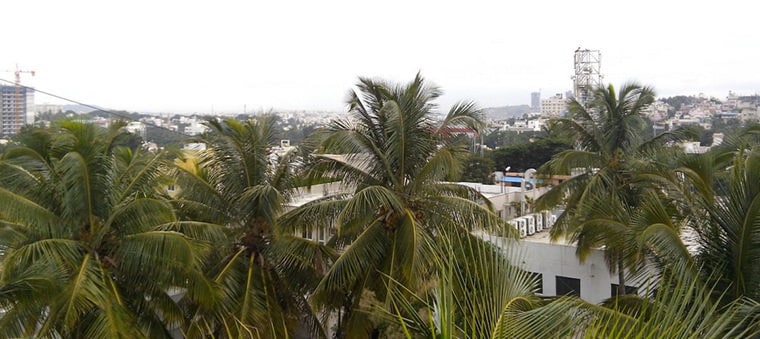

Materialien & Qualität
Die Kuh in Indien ist heilig. Allerdings besteht die indische Bevölkerung aus 13% Muslimen. Für diesen Bevölkerungsanteil werden in ostindischen Arealen Rinderherden für die Nahrungsmittelherstellung gehalten. Die Verwertung erfolgt in staatlichen Schlachtereien, in denen das Rohleder anfällt, welches unsere Partner weiter verwerten.
Mit dem Fabrikneubau und der Zusammenarbeit mit SEDEX/Bureau Veritas rückte die Ökologisierung der Materialien schrittweise in den Fokus. Die Umstellung erfolgt in drei Bereichen:
Umstellung von semivegetabilen Leder auf vollvegetabile Leder
Verwendung von Biobaumwollgeweben als Innenmaterial für Taschen
Verwendung von nachhaltigen, flexibel nutzbaren Verpackungen aus Biobaumwolle
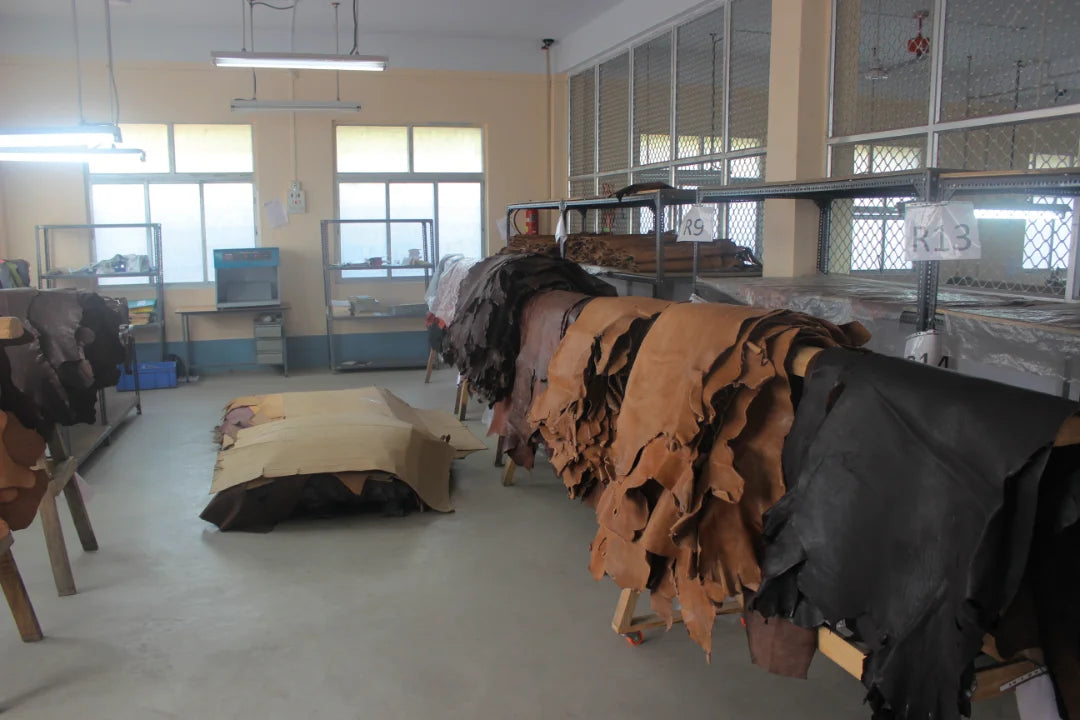
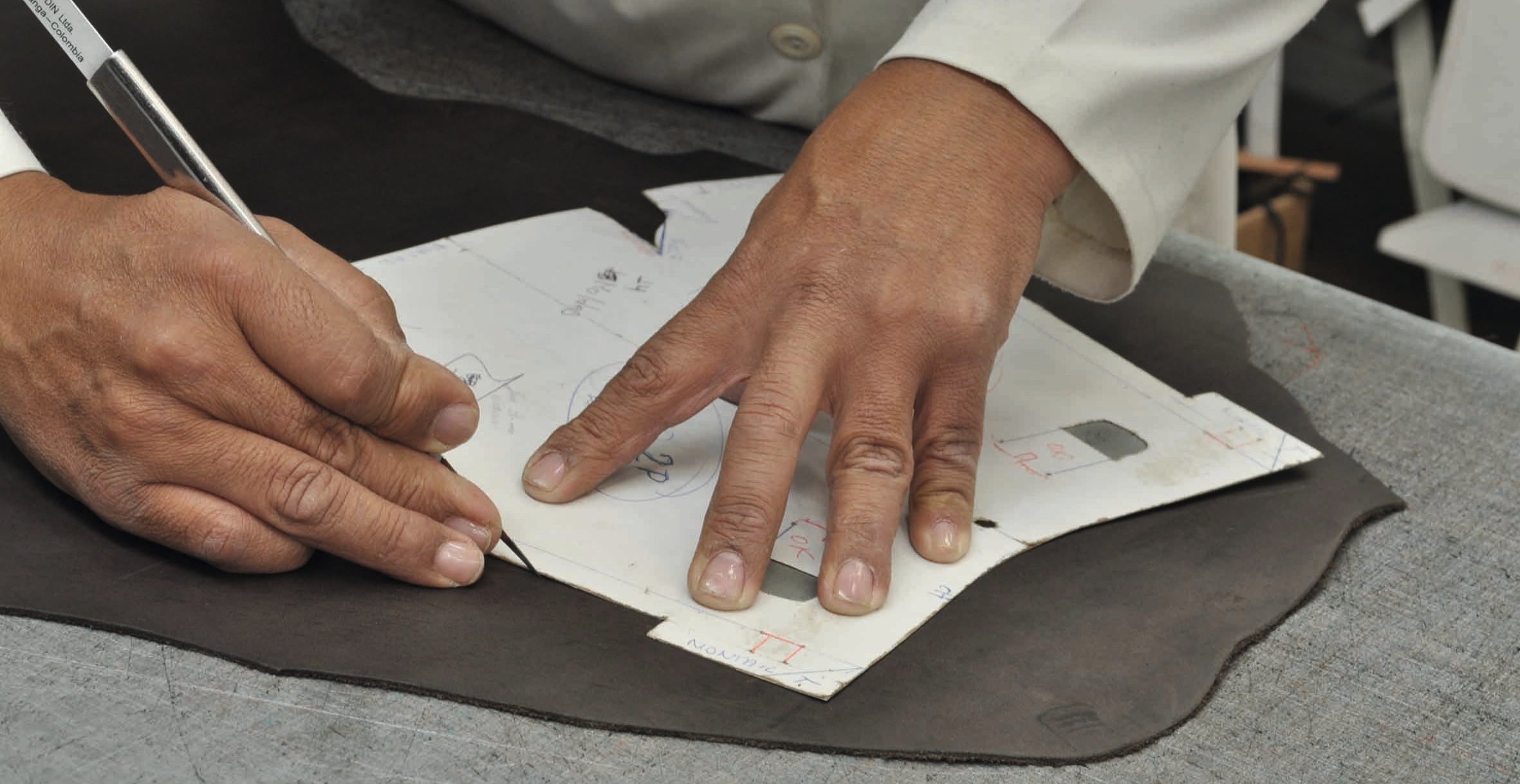
Arbeitsbedingungen
Der gemeinsame Weg führte schließlich 2005 zu einem Fabrikneubau. Seitdem arbeiten unsere Partner mit SEDEX und dem Büro Veritas zusammen. Beide Organisationen verfolgen ein Konzept, das den Unternehmen als Grundlage dient, auf freiwilliger Basis soziale und Umweltbelange in die Unternehmenstätigkeit zu integrieren. Die derzeit 67 Mitarbeiter arbeiten für ein Gehalt, das über dem gesetzlich vorgeschriebenen Mindestlohn liegt. In regelmäßigen Abständen wird dies vom Staat kontrolliert. Die Verträge beinhalten eine Sozial-, eine Kranken- und eine Unfallversicherung, sowie 15 bezahlte Urlaubstage. Ein Mutterschaftsurlaub umfasst 90 bezahlte Tage. Die Arbeiter erhalten ihre Arbeitsverträge in Kopie, sowie monatliche Gehaltsabrechnungen. Die Regelarbeitszeit umfasst 48 Std./Woche (8 Std x 6 Tage). Überstunden sind max. 2 Std./Tag erlaubt und werden mit doppeltem Stundenlohn (200%) berechnet. Das Mindestalter liegt bei 14 Jahren,ab einem Alter von 18 Jahren darf aber erst die volle Arbeitszeit gefordert und geleistet werden. Es gibt keine Heimarbeit und keine Wanderarbeit, was eine hohe Verarbeitungsqualität fördert.
Im Betrieb gibt es ein Arbeiter Kommitee, das sich monatlich trifft und über Tarife und Belange der Arbeiter verhandelt. Das ist vertraglich festgehalten. Die Arbeitszeiten und Pausen sind geregelt, Überstunden werden bezahlt und überschreiten nicht die gesetzlichen Vorgaben.Es wird eine Gleichstellungspolitik praktiziert, die Diskriminierung vermeiden soll. Die Arbeiter haben einen Ansprechpartner, an den sie sich vertrauensvoll wenden können. Krankheiten, wie z.B. HIV-Infekt haben keine Auswirkungen in Bezug auf Beschäftigung und Arbeitsbedingungen.
